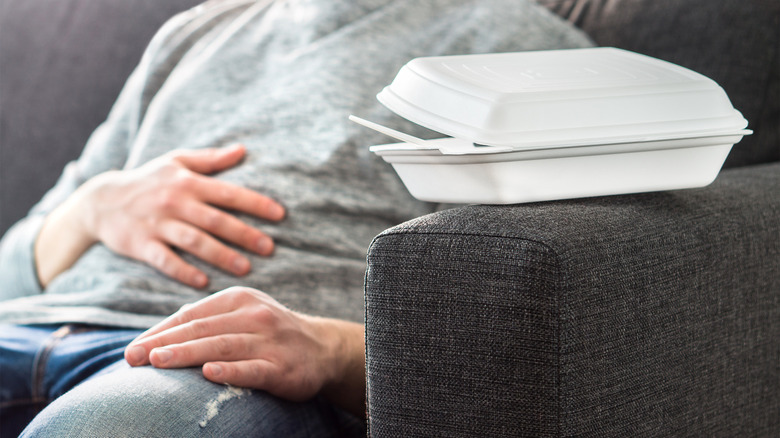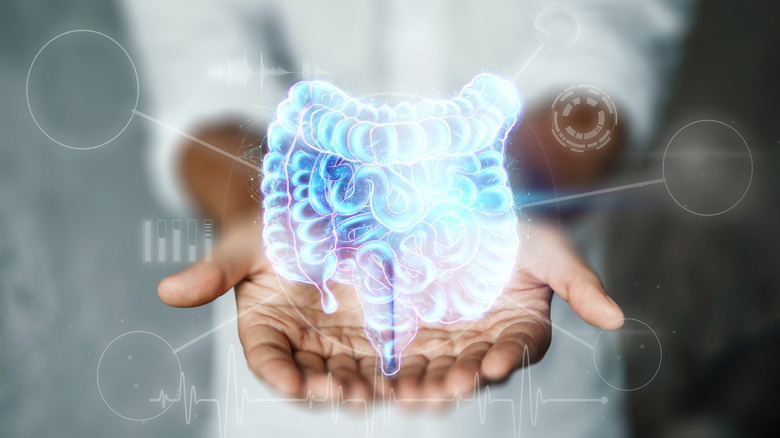What Happens To Your Body When You Overeat
If you've ever overindulged at a Thanksgiving meal or eaten one too many morning donuts, it might have felt like your stomach was going to explode. While this won't actually happen, the discomfort that comes from overeating is real — what's really going on in there?
When we digest food, the digestive system breaks down nutrients so our bodies can absorb and use them for fuel and growth (via the National Institute of Diabetes and Digestive and Kidney Diseases). After we take a bite, chew, and swallow, the food passes through the esophagus, eventually reaching the stomach. Once in the stomach, the food mixes with digestive juices to begin breaking down. Afterward, the contents are released into the small intestine. Once in the small intestine, the muscles blend the food with more digestive juices from the liver and pancreas as well. Water and nutrients are absorbed into the bloodstream while waste is excreted into the large intestine. Here, the waste is transformed from liquid into stool and leaves the body through the rectum.
Digestion includes many organs, systems, chemicals, and muscle movements that work together to help fuel our bodies (via MedicalNewsToday). While this should be an easy process, it doesn't always work so smoothly.
The risks of overeating
When we eat too much, our stomach expands to make room for all of the food, which signals to the brain that we're full, according to EatingWell. However, it's not always so easy — in the short term, eating beyond what feels good can cause acid reflux, heartburn, drowsiness, abdominal discomfort, and high blood sugar. It can also be worse if we eat too much right before bed. Lying down after eating can make these symptoms worse and interfere with our sleep.
If we continue to overeat for long periods of time, there can be serious health outcomes. Long-term effects can include weight gain, insulin resistance, a higher risk of type 2 diabetes, and it can become harder to recognize when you're full.
If you find that you've overindulged, don't beat yourself up about it (via WebMD). Relax and decide how you'd like to handle it in the future, and then move on so you don't get caught up in an unhealthy cycle. Taking a short walk can help with digestion and lower your blood sugar. Sipping on water can help flush out extra salt from your meal as well (but stay away from carbonation). Make sure you remain upright to encourage digestion, and after a few hours, a workout may help to increase your metabolism. For your next meal, make a plan ahead of time and try to eat mindfully and slowly.


